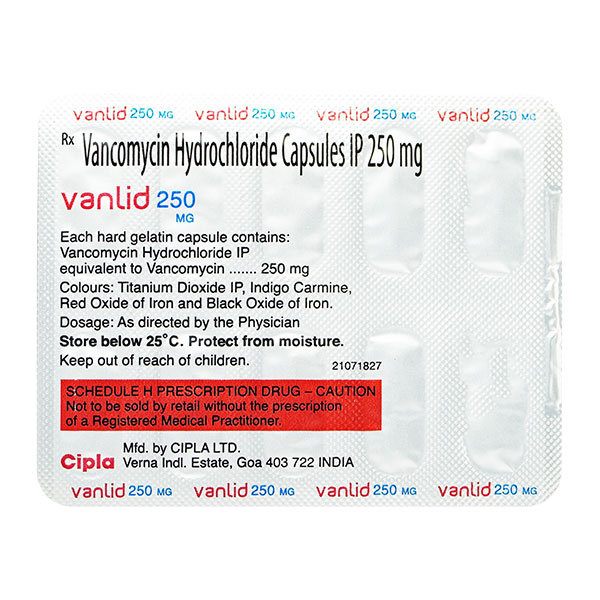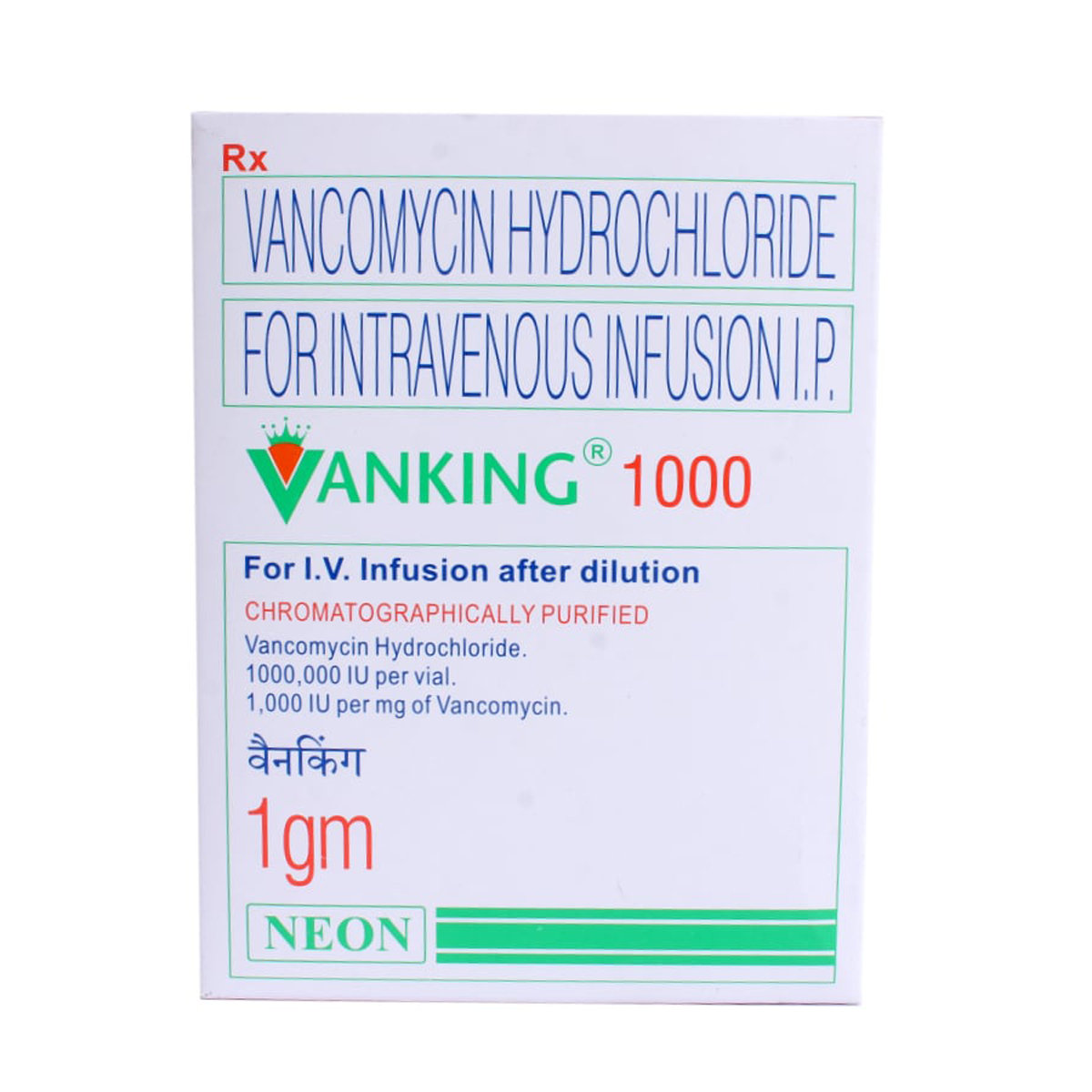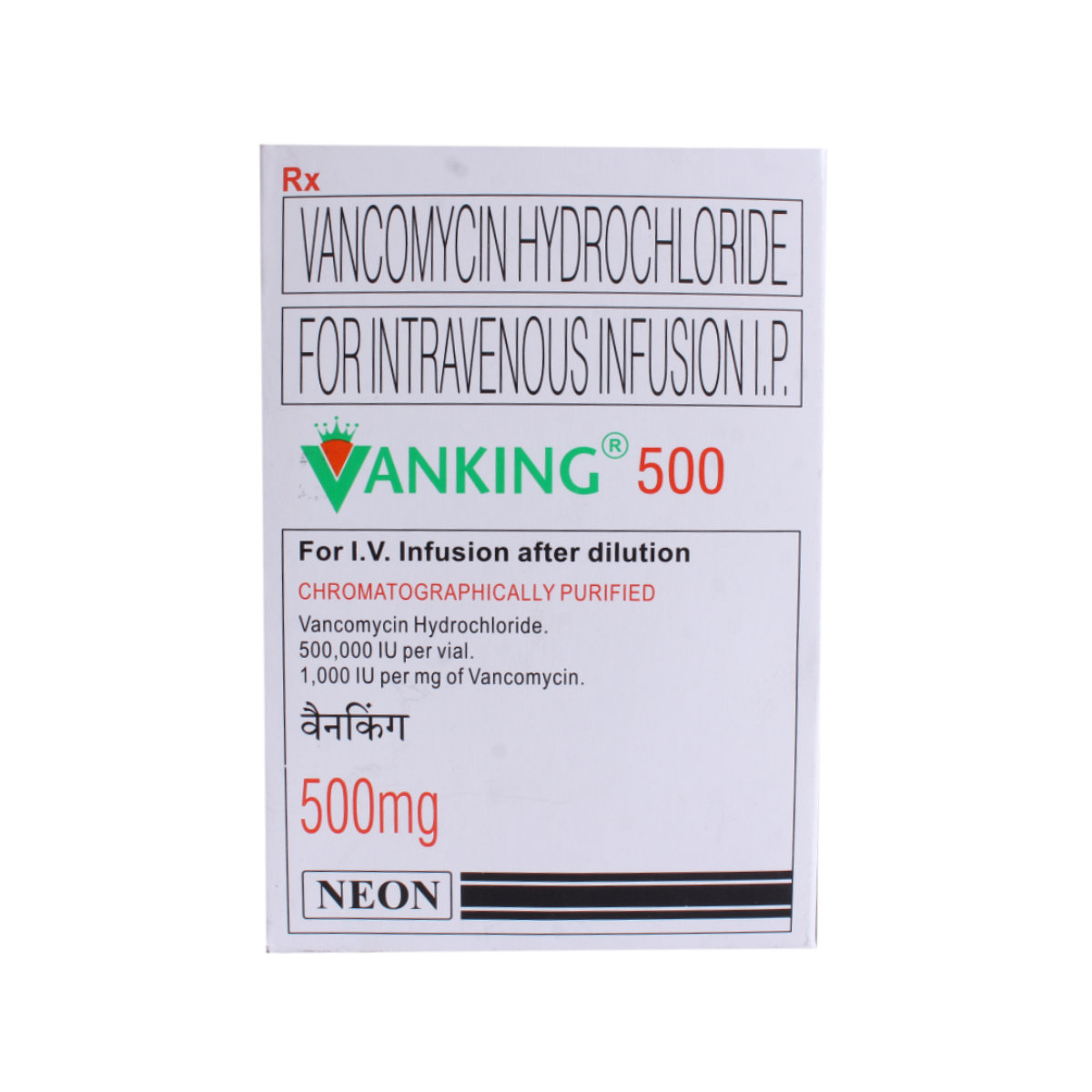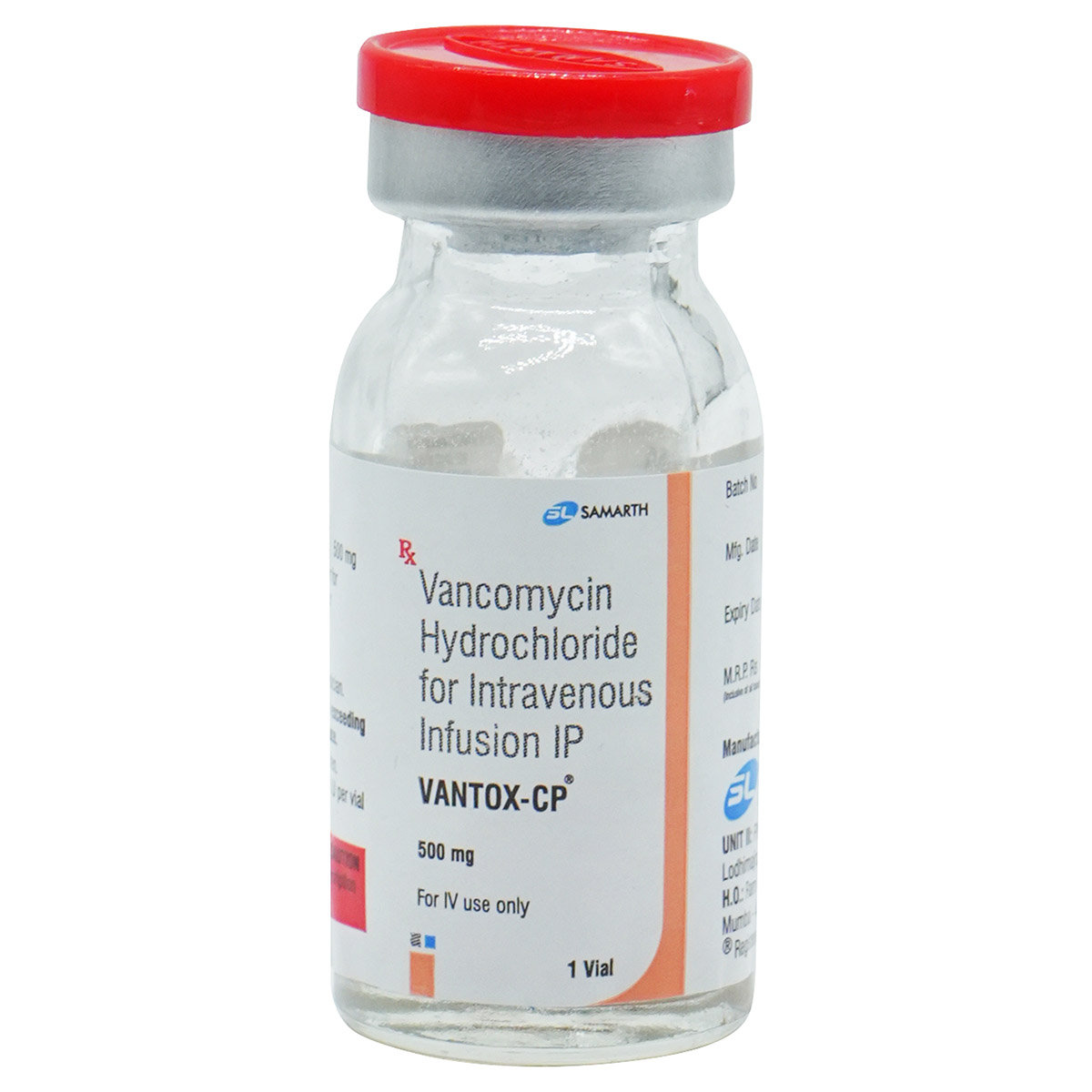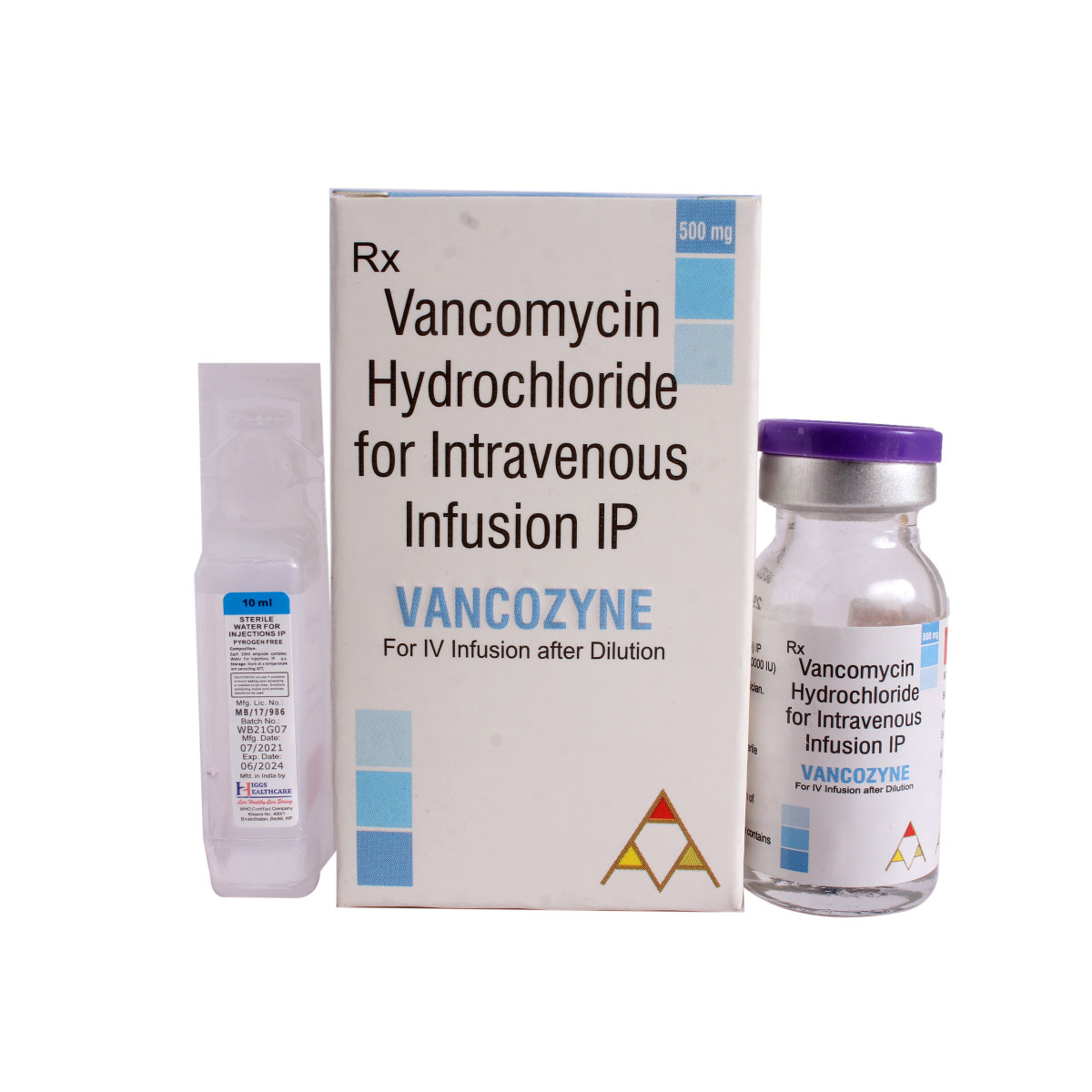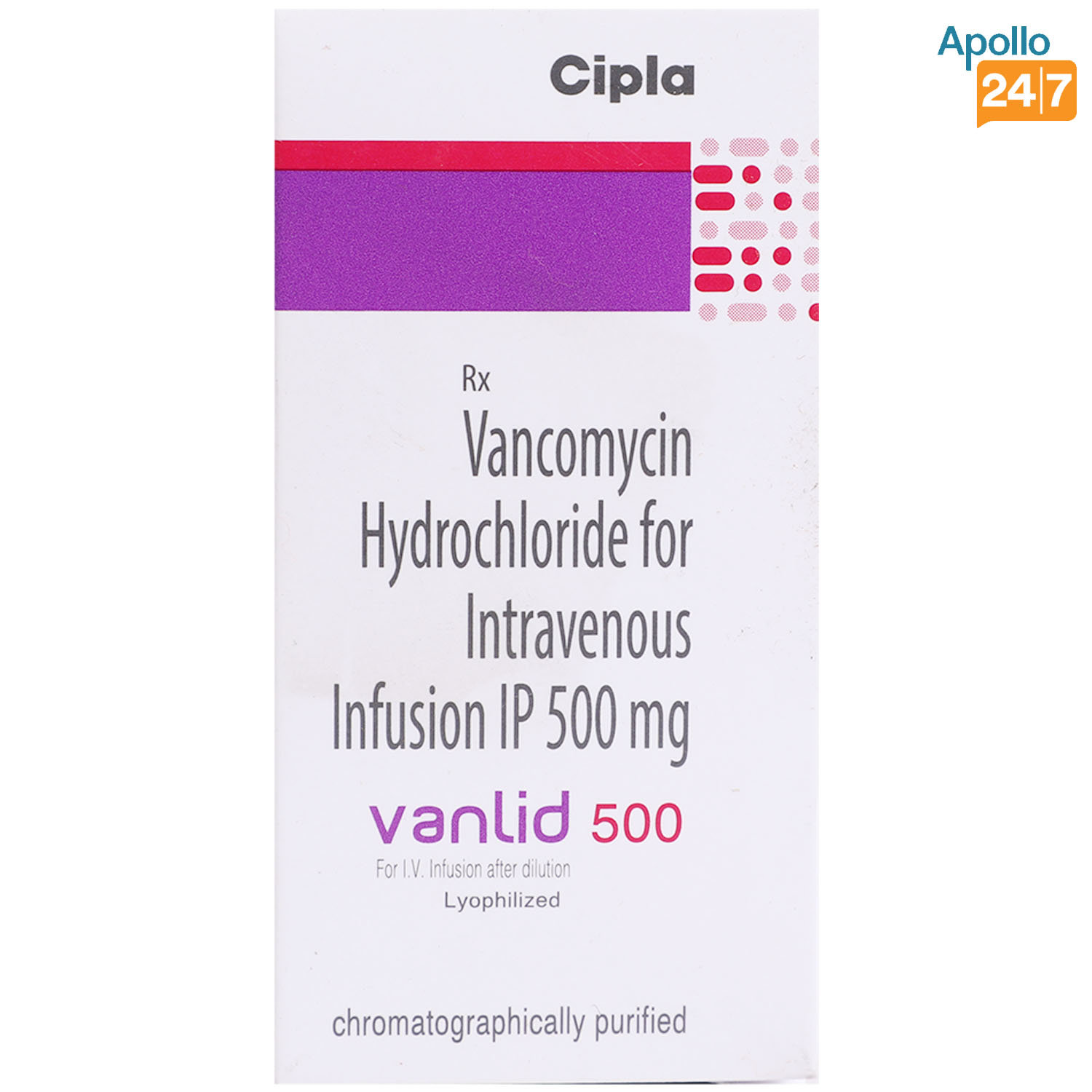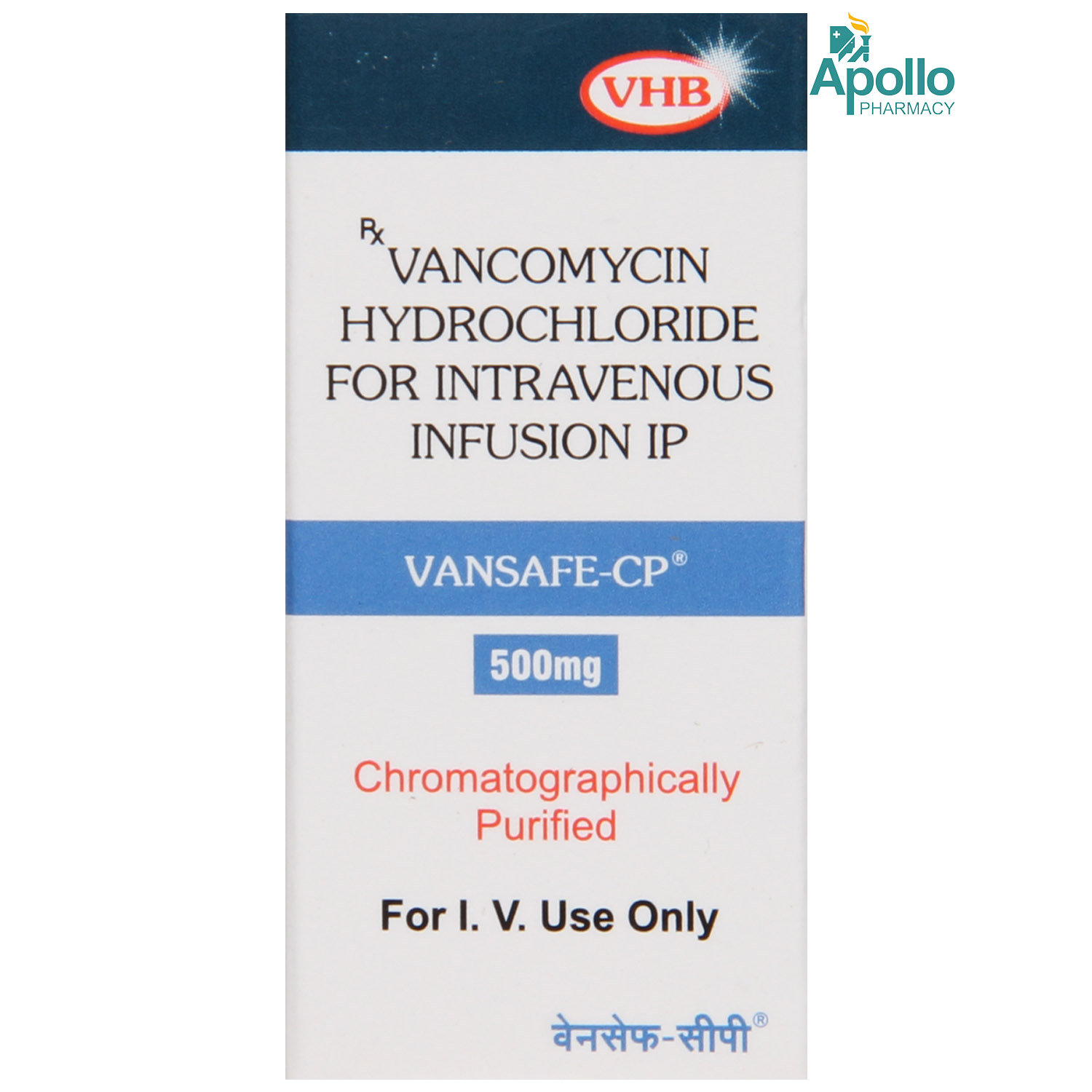Vancomycin
About Vancomycin
Vancomycin belongs to a class of antibiotics called glycopeptide, primarily used to treat severe bacterial infections in hospitalised patients. It is effective against bacterial infections like ulcerative colitis (chronic inflammation of the colon), bacterial septicemia (infection of the blood caused by bacteria), and osteomyelitis (infection of the bone). Bacterial infection occurs when harmful bacteria grow in the body and causes illness.
Vancomycin is composed of 'Vancomycin'. It kills bacteria by preventing them from forming the bacterial protective covering (cell wall), which is needed for them to survive.
Vancomycin will be administered by a healthcare professional; do not self-administer it. Common side effects of Vancomycin are application site reactions like pain, redness, and swelling. Most of these side effects do not require medical attention and gradually resolve over time. If these side effects persist longer, please consult your doctor.
Let your doctor know if you have liver/kidney diseases, hearing problems, and stomach/intestinal disorders before starting Vancomycin. Do not use Vancomycin while getting vaccinated with live bacterial vaccines (typhoid vaccine) since Vancomycin may affect vaccines' activity. Pregnant and breastfeeding women should consult the doctor before starting Vancomycin. Avoid alcohol consumption to prevent any undesired effects while using Vancomycin. Vancomycin should be used for children only when prescribed by a doctor, depending on the child's age and body weight.
Uses of Vancomycin
Medicinal Benefits
Vancomycin is composed of 'Vancomycin'. It kills bacteria by preventing them from forming the bacterial protective covering (cell wall) needed to survive. Vancomycin used to treat severe bacterial infections in hospitalised patients. It is effective against bacterial infections like ulcerative colitis (chronic inflammation of the colon), bacterial septicemia (infection of the blood caused by bacteria), osteomyelitis (infection of the bone), endocarditis (infection of the inner lining of the heart ), skin and soft tissue infection, surgical prophylaxis (infections during surgery) and lower respiratory tract infections.
Directions for Use
- Follow your doctor’s recommendations on the dosage and timing of this medication to achieve optimal results.
- Vancomycin will be administered by a healthcare professional.
- Do not self-administer.
Storage
Side Effects of Vancomycin
- Pain
- Redness
- Swelling at the injection site
Medicines Containing this Salt
View AllDrug Warnings
Let your doctor know if you are allergic reactions to any medicines. Some rare cases may cause serious side effects like hearing problems (such as ringing in the ears, and hearing loss) and signs of kidney problems (such as a change in the amount of urine), please stop using the medicine in such cases and consult your doctor immediately. Do not use Vancomycin while getting vaccinated with live bacterial vaccines (typhoid vaccine) since Vancomycin may affect vaccines' activity. Pregnant and breastfeeding women should consult their doctor before taking Vancomycin. Avoid alcohol consumption to prevent any undesired effects while using Vancomycin. Vancomycin should be used for children only when prescribed by a doctor, depending on the child's age and body weight.
Drug Interactions
Drug-Drug Interaction: Vancomycin may interact with antibiotics (amikacin, gentamicin, bacitracin), blood thinner (enoxaparin, warfarin), diuretics (furosemide), anti-diabetics (metformin, insulin-glargine), vaccines (cholera vaccine, typhoid vaccine), oestrogen (ethinylestradiol), pain killers (ketorolac), and antacids (pantoprazole).
Drug-Food Interaction: Avoid fatty foods, alcohol, and caffeine with Vancomycin.
Drug-Disease Interaction: Inform your doctor if you have colitis, ototoxicity/hearing problems, kidney dysfunction, neutropenia (abnormally low count of a type of white blood cell (neutrophils), and gastrointestinal inflammation.
Drug-Drug Interactions Checker List:
Safety Advice

Alcohol
cautionInteraction with alcohol is unknown. It is advisable to consult your doctor before consumption.

Pregnancy
cautionPlease consult your doctor before taking Vancomycin if you are pregnant or planning to conceive.

Breast Feeding
cautionVancomycin can be excreted into breast milk when used by a nursing mother. Please consult your doctor before taking Vancomycin if you are breastfeeding.

Driving
cautionThere is limited data on how Vancomycin affects your driving ability. Please seek medical advice for more information.

Liver
cautionLet your doctor know if you have any history of liver diseases or hepatic impairment. Your doctor will weigh the benefits and potential risks before prescribing Vancomycin. However, it is not recommended in patients with severe liver diseases.

Kidney
cautionLet your doctor know if you have any history of kidney problems. Your doctor will weigh the benefits and potential risks before prescribing Vancomycin. However, it is not recommended in patients with severe kidney diseases.

Children
cautionVancomycin should be used for children only when prescribed by a doctor, depending on the child's age and body weight.
Habit Forming
Diet & Lifestyle Advise
- Taking probiotics after an antibiotic treatment reduces the risk of antibiotic-associated diarrhoea.
- Try taking yoghurt, cheese, sauerkraut, and kimchi that help restore the intestine's good bacteria.
- Include more fibre-enriched food in your diet that is easily digested by your gut bacteria. Fibre foods may also help restore healthy gut bacteria after a course of antibiotics.
- Avoid intake of alcoholic beverages as it can make you dehydrated and affect your sleep.
- Manage stress, eat healthily, drink plenty of water, exercise regularly, and get plenty of sleep.
Special Advise
Your doctor may regularly monitor your kidney function and hearing while taking this medicine.
Patients Concern
Disease/Condition Glossary
Bacterial infection occurs when harmful bacteria grow in the body and causes illness. It can infect any part of the body and multiply very quickly. Bacteria occur in three basic shapes: spherical, rod and spiral-shaped. Bacteria may be gram-positive (have a thick cell wall) or gram-negative (do not have a cell wall). Some common symptoms of a bacterial infection include cough, fever, shortness of breath, chills, muscle pain, fatigue, and tiredness. Untreated bacterial infections may lead to serious life-threatening conditions like sepsis.
FAQs
Vancomycin is used to treat severe bacterial infections in hospitalised patients. It is effective against bacterial infections like ulcerative colitis (chronic inflammation of the colon), bacterial septicemia (infection of the blood caused by bacteria), and osteomyelitis (infection of the bone).
Vancomycin contains Vancomycin which kills bacteria by preventing them from forming the bacterial protective covering (cell wall), which is needed for them to survive.
Vancomycin can affect the live vaccines like typhoid vaccine and decrease its effectiveness. Please consult a doctor before you start Vancomycin if you are undergoing any vaccinations.
Diarrhoea can be a side-effect of Vancomycin. Clostridium difficile-associated diarrhoea (CDAD) is also reported during the usage of antibiotics like Vancomycin. Therefore, when the patient has diarrhoea, undergoing an examination is advised to rule out the chances of CDAD following Vancomycin therapy.
While using Vancomycin, caution should be exercised for patients with a history of kidney impairment, hearing problems, newborns, and the elderly population.
Yes, Vancomycin is an antibiotic. It contains vancomycin as its active ingredient, which belongs to the class of medications called glycopeptide antibiotics.
The dose of Vancomycin varies depending on the severity of the infection and the patient's condition. However, your doctor will determine the exact dose and duration based on your specific condition. Do not self-administer.
Vancomycin typically starts working soon after intravenous infusion. However, it may take a few days to notice significant improvement in symptoms. It's important to complete the full course of treatment as prescribed by your doctor.
The common side effects of Vancomycin are pain, redness, and swelling at the injection site. If any of these side effects persist or worsen, please consult your doctor.
